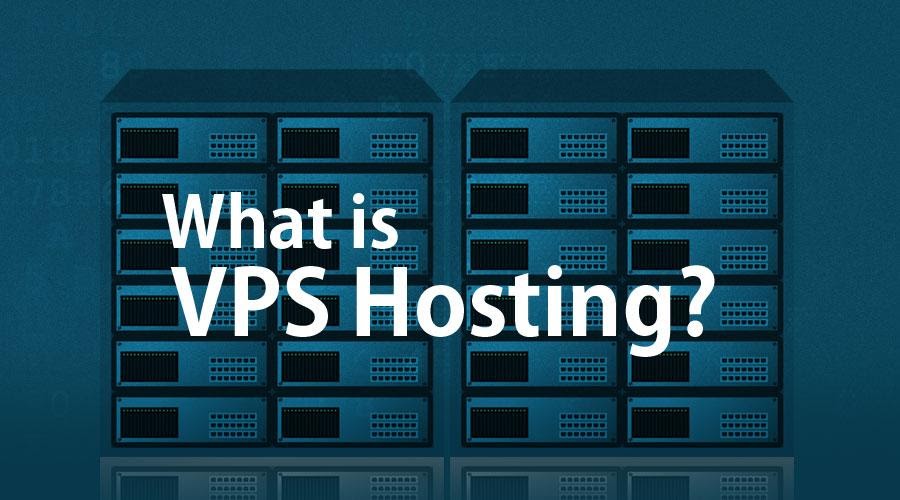A Virtual Private Server (VPS) is a hosting solution that offers a more advanced version of shared hosting. In VPS hosting, your website or application is allocated dedicated resources such as its own operating system, storage, and RAM within a single physical server. While sharing the physical server with others, your resources are isolated, giving you a level of functionality similar to that of a dedicated server. This makes VPS hosting ideal for websites or applications that require better performance, reliability, and control.
VPS hosting acts as a standalone server, offering dedicated resources at a fraction of the cost of dedicated hosting. It’s a popular choice for growing websites, high-traffic blogs, eCommerce stores, and businesses needing enhanced control and performance.
What is Cloud Hosting?
Cloud hosting is a flexible hosting solution where your website or application’s data is distributed across multiple servers within a vast network. Unlike traditional hosting that relies on a single physical machine, cloud hosting leverages the power of interconnected servers. This ensures greater scalability, redundancy, and reliability. Your data is accessible online, which allows for seamless resource allocation based on your needs.
Cloud hosting can be visualized as a large water tank of resources. You use only what you need, and as your website’s requirements grow or shrink, you can adjust resource allocation accordingly. This flexibility makes cloud hosting ideal for dynamic, high-traffic websites.
Key Differences: VPS Hosting vs Cloud Hosting
- Resource Allocation
- VPS Hosting: Resources such as CPU, RAM, and storage are dedicated to your website within a single physical server. Scaling often requires migrating to a higher plan if resources are fixed.
- Cloud Hosting: Resources are allocated across multiple servers, allowing for flexible and dynamic scaling without migration.
- Scalability
- VPS Hosting: Scalability is typically vertical, meaning you can add more CPU, RAM, or storage within the physical server’s limits. Some providers may have fixed plans requiring upgrades.
- Cloud Hosting: Offers seamless scalability, enabling you to adjust resources on demand to handle traffic spikes or changing needs.
- Control and Flexibility
- VPS Hosting: Provides greater control over server configuration, software installation, and optimization, but requires technical expertise.
- Cloud Hosting: Offers user-friendly interfaces for resource management but may have limited control compared to VPS.
- Cost
- VPS Hosting: Typically has a fixed monthly cost based on allocated resources.
- Cloud Hosting: Uses a pay-as-you-go model, charging for the resources you consume.
- Security
- VPS Hosting: Offers a dedicated environment, enhancing security. However, security largely depends on user management and the hosting provider’s measures.
- Cloud Hosting: Provides strong built-in security measures, though data breaches may affect multiple users in rare cases.
- Performance
- VPS Hosting: Delivers consistent performance due to dedicated resources but may face downtime due to hardware failures.
- Cloud Hosting: Known for high performance through redundancy and load balancing across multiple servers.
- Uptime
- VPS Hosting: Relies on the physical server’s hardware, which can lead to occasional downtime.
- Cloud Hosting: Offers higher uptime due to redundancy and automatic failover across servers.
Benefits of VPS Hosting
- Dedicated Resources: Guarantees a portion of server resources, ensuring consistent performance and uptime.
- Increased Control: Provides administrative privileges for server configuration and optimization.
- Cost-Effective: More affordable than dedicated hosting, offering better performance than shared hosting.
- Scalability: Allows resource upgrades for growing websites, although often within fixed plans.
- Predictable Performance: Ideal for websites with steady traffic patterns, ensuring reliable performance.
Drawbacks of VPS Hosting
- Technical Expertise Required: Managing a VPS requires knowledge of server management, such as using control panels and troubleshooting.
- Single Point of Failure: Dependency on a single physical server makes it vulnerable to hardware failures.
- Less Beginner-Friendly: Beginners may find VPS hosting challenging compared to shared hosting.
Benefits of Cloud Hosting
- Scalability: Easily adjust resources during traffic spikes or changing needs.
- High Availability: Reduced downtime due to redundancy across multiple servers.
- Cost-Efficiency: Pay-as-you-go model charges only for the resources used.
- Advanced Features: Includes tools like load balancing, auto-scaling, and CDNs.
- Global Reach: Distributed data centers ensure low latency for users worldwide.
Drawbacks of Cloud Hosting
- Potential for Higher Costs: Costs can escalate with consistent high resource usage.
- Security Concerns: Data breaches may affect multiple users.
- Internet Dependency: Relies on a stable internet connection for optimal performance.
VPS Hosting vs Cloud Hosting: Which is Right for You?
- Choose VPS Hosting if:
- Your website has steady, predictable traffic.
- You need more control over server management.
- You’re running a business, high-traffic blog, eCommerce site, or development environment.
- Choose Cloud Hosting if:
- Your website experiences unpredictable traffic spikes.
- Scalability and global reach are essential.
- You prioritize reliability and redundancy.
Affordable VPS Hosting Solutions
Looking for cost-effective VPS hosting? HostBet offers affordable plans designed for growing businesses and bloggers. Enjoy seamless scalability, robust security, and exceptional performance at budget-friendly prices. Experience the power of dedicated resources without overspending.
Final Thoughts on VPS Hosting vs Cloud Hosting
Choosing between VPS and cloud hosting depends on your website’s specific requirements. VPS hosting provides a virtual machine with dedicated resources, ideal for predictable traffic patterns and users comfortable with server management. Cloud hosting, on the other hand, excels in flexibility and scalability, making it suitable for dynamic traffic and rapid growth. Evaluate your needs carefully to select the best hosting solution for your website or application.


